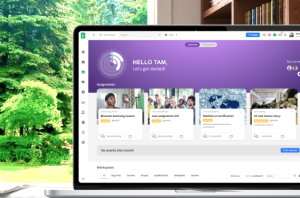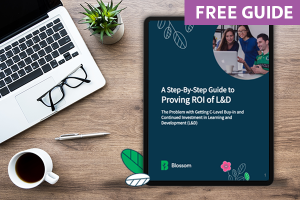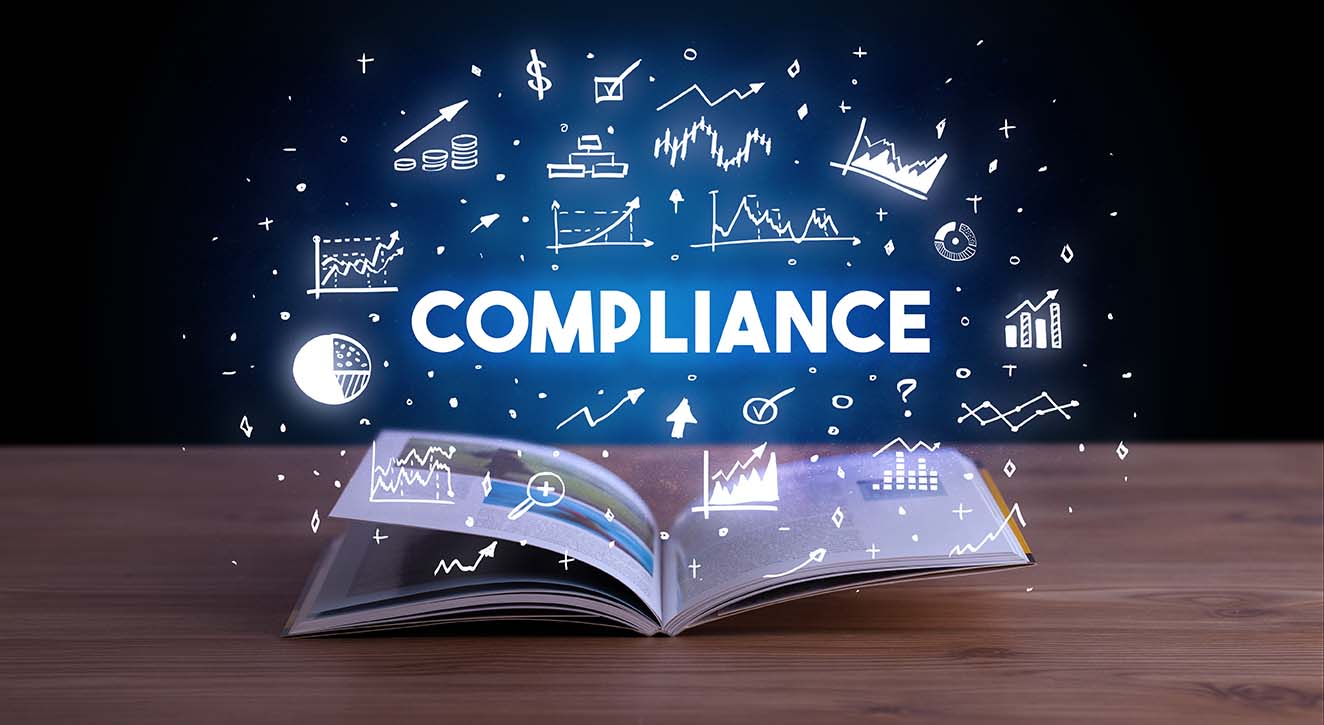This article will focus on what makes the perfect “partner” as your LMS system provider, or the company that adapts the system for you.
This article will focus on what makes the perfect “partner” as your LMS system provider, or the company that adapts the system for you. The purpose of these articles is to encourage deep consideration and to prompt you to ask questions when selecting an LMS provider, to make an informed decision.
1. Identify the maturity of the system
All LMS systems function at different levels of maturity. A new system is defined as being on the market for up to 5 years with up to 50 customers. It hasn’t dealt with the breadth of bespoke problems and challenges from a wide variety of customers. It may lack important features, have little support for integration with other systems, and have the inability to deal with the problems of your specific sector. While they can be at a much cheaper price, you have to decide if you’re willing to take the risk and if your organisation can work with a more unreliable solution.
2. Ask for specifics: What market and organisation is their system designed for?
Salespeople will often tell you exactly what you want to hear. They will claim their LMS system is aimed at every possible market and every size of organisation. Sometimes it’s best to go for something more niche, whose customers are in the same sector as you. Every industry has different needs, and not all LMS systems meet these exact needs.
An enterprise-level LMS for a global manufacturing company with 20,000 employees will be too large and complex for an insurance agency with 300 employees.
How do you determine if the LMS system is suitable?
The easy way to do this is by asking for recommendations from other companies who are a similar size to you and manage the same processes that you do.
3. Be cautious about trends and buzzwords
Skilled salespeople may throw around trends and buzzwords to excite you about their system’s seemingly advanced capabilities. While on the surface, these all sound very advanced and technical, do you really need these extra capabilities that come at an extra cost? Anything that comes at an extra price needs valid justification, not just buzzwords.
An example of these buzzwords
“We have gamification, machine learning, AI, LXP, and more!” Let’s dive into one of these attractive features. So, gamification; it looks good, and it certainly sounds impressive.
The definition of gamification is:
Gamification is the strategic attempt to enhance systems, services, organisations, and activities by creating similar experiences to those experienced when playing games to motivate and engage users.
Gamification is essentially ineffective without a regulated organisational process behind it. It won’t positively contribute to an organisation if there is no good teamwork. It requires a lot of resources to maintain the gamification processes and keep them effective and exciting for your team.
What should you do when you come across buzzwords?
Ask yourself:
- Do I really need this feature?
- Will it work in my organisation?
- Will it improve performance in my organisation?
- Can I maintain it over time?
Remember, if you feel you’d like a new on-trend feature added to your LMS, there are systems on the market today that can integrate with other LMS systems. There’s always the opportunity to interface the perfect solution for your needs, as your needs change over time.
4. Don’t be fooled by an attractive dashboard
You may come across an LMS system with an amazing design and immaculate branding, yet this LMS doesn’t really support your day-to-day business processes.
The priority should be analysing how the system will respond to your organisational processes, to prevent unnecessary manual work. Perhaps, it creates beautiful graphs highlighting trends in e-learning. But can it perform basic tasks such as connecting employees to the correct e-learning modules?
5. Create your specification of essential features and capabilities
Prepare a neat specification of exactly what you’re looking for in an LMS. It can be written simply, in a bullet point list or a simple table. Clearly defining your needs and writing them down will influence your entire decision-making process.
Your specification can be sent to various LMS providers. They can provide a compatibility assessment for each of your needs. Define a score that you require for each one, between 0 and 5, 5 being for high compatibility. Ask for a brief explanation for each line, or even a screenshot showing they can do it. It helps you identify which LMS provider deeply understands your needs, processes and industry terminology.
A green flag of a trusted supplier is if they don’t rank themselves as a 5 for each of your needs. Ranking themselves at level 5 for everything shows they’re not being completely honest. No single system is perfect, and chances are no system will fit your exact needs.
Performing this analysis enables you to identify the strengths and weaknesses of each system, and which ones are oriented towards your needs.
6. Can you customise the modules of the system?
Some customisation questions to ask:
- Is this system modular?
- Is it possible to add additional capabilities to it in the future? What is the timeframe for these, and do they come at an extra cost? Will there need to be a temporary shutdown of the system?
- Is it possible to remove or hide capabilities that you don’t want to use?
- Can you stop using the capabilities you have acquired, which you no longer need? Will you get a discount when you stop using them?
- Will the activated future capabilities be added in accordance with the same design? Are they an additional system that is quickly patched into the existing system?
7. How flexible is the LMS?
Setting up a brand-new system can’t always be perfectly planned. Regardless of how much you prepared in advance, there will be business processes that you didn’t think through. Once you have the LMS system live, it may prompt you to want other processes integrated with the LMS to help it adapt further to your business needs.
Have a conversation with the LMS provider about this before you choose them. Can they allow new additions to your LMS after it goes live? What can’t they add? What about response times?
8. If it looks too good to be true, it probably is
An information management system includes multiple functions and processes that work behind the scenes. These ensure your system loads quickly, is cyber secure 24/7, retains your data, presents real-time data, supports your automation processes, and more.
If you receive a significantly cheaper quotation, be suspicious.
Clarify what the reasons are for this price:
- Could this be a penetration price? If this system is new on the market, the supplier is most likely desperate for quick sales. It could be a start-up company trying to present their investors with paying customers. This shows the system is not experienced and may result in a rocky setup.
- Perhaps the system you’re analysing is just not high quality. Check with companies who work with this system about how satisfied they feel with it.
While a low price is attractive, be prepared for the risks that come with this and how to deal with them.
9. Let’s talk about pricing methods
There are numerous pricing methods on the market. How do you decide which one works best for your organisation?
- You must weigh the cost against the benefit and cost over time to see what suits you better.
- If the pricing method is a periodic payment, make sure you have exit points from the contract. Clarify if there is the chance of price increases.
- Ensure the service will remain the same throughout the length of the agreement.
- Check what will happen in terms of pricing if there are changes to the number of users using the system.
10. Ensure you speak to recommenders
This has been mentioned before, we can’t express the importance of this! Remember, you are not the first to purchase an LMS system in an organisation, and you won’t be the last! There is a lot to be learnt from every experience with an LMS.
Ask the LMS provider for a few of their clients and reach out to these people. Organise a short interview with questions that are important to you.
These could include:
- What are the system’s strengths?
- How much support do you receive from the system provider?
- What is your overall satisfaction rating? Why?
- How reliable do you find the system?
- How did the deployment process go?
- How regular is the communication with the supplier?
- Who is the most senior person you can reach for support from the LMS organisation?
11. What about if the LMS isn’t for you?
It’s important to prepare for the potential situation that the LMS integration is a failure. It may not fully address your business needs.
Here’s what to plan in the contract stage:
- Will you be able to easily receive all performance, participation, and certification data simply and quickly?
- Is it possible to export all questionnaires?
- What format can you export the e-learning in?
- How long from starting to use the system can you export data from it? Request to perform an export test of information in your required format as part of the LMS examination process.
Conclusion
When evaluating your LMS options, it’s important to think through lots of different scenarios and outcomes. A good way to do this is to map out your system’s ideal requirements and perform a procurement exercise in line with this. Considering the flexibility of the system, customisation modules and pricing models are essential. Taking up references is really important to gauge what people who use the system really think.
Find out more about how to choose the best LMS for you organisation by reading the next article of this guide: Guidelines for Choosing an LMS Platform– Choosing an LMS Part 4








